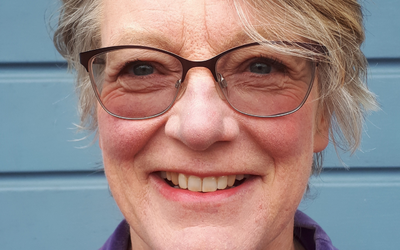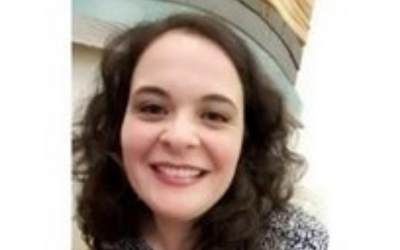You are here
- Home
- External Events and Publications
- Biennial APS Conference
- APS Conference 2023
- Conference programme
- Employability and Student Success: Virtual Internships for Underrepresented Students
Employability and Student Success: Virtual Internships for Underrepresented Students
Catherine Comfort, Andrew Potter, Diane Butler, Flavia Ranzolin Navas, Kristen Reid and Trinny Western, The Open University
Email: Catherine.comfort@open.ac.uk
Presentation
Abstract
Virtual internships offer an innovative approach for supporting employability and improving graduate outcomes for underrepresented students. Recent research has indicated that many students who would benefit from an internship are often unable to take part due to work and family commitments (Hora et al., 2020) and that this often disproportionately affects students from underrepresented groups. In virtual internships, interns work remotely and are supported by their supervisors through email, phone and conferencing software. This type of internship can provide greater flexibility for the intern and also can offer opportunities to gain work experience to students who may have difficulty working on site, such as students with disabilities (Kraft et al., 2019). Successful virtual internships, however, require interns to develop skills in working independently (Pretti et al., 2020) and interns also benefit support from a strong mentoring approach by their supervisor (Jeske & Lineham, 2020).
In this seminar, the project team, including student interns, will discuss the findings from an empirical study of a pilot virtual internship scheme at a large UK university. The pilot scheme is part of a suite of initiatives intended to address the university’s Access and Participation Plan (Office for Students, 2018) that supports university-based virtual internships for underrepresented students. Data were collected in 2022 through focus groups with the first cohort of virtual interns under the scheme and via semi-structured interviews with their supervisors.
We focus specifically on the role of the supervisor in supporting the virtual intern and what makes for a supportive and successful virtual internship experience. Additionally, as many of the internships supported the university’s aims in improving equality, diversity and inclusion, the seminar will identify how this innovative type of student-staff partnership can help to achieve these aims.
References
Hora, M., Chen, Z., Parrott, E., and Her, P. (2020). Problematizing college internships: Exploring issues with access, program design and developmental outcomes. International Journal of Work-Integrated Learning, 21(3), 235–252.
Jeske, D., & Linehan, C. (2020). Mentoring and skill development in e-internships. Journal of Work-Applied Management. Advance online publication. https://www.emerald.com/insight/content/doi/10.1108/JWAM-09-2019-0028/full/html
Kraft, C., Jeske, D. & Bayerlein, L. (2019). Seeking diversity? Consider virtual internships. Strategic HR Review, 18(3), 133-137.
Office for Students. (2018). Regulatory Notice 1: Access and Participation Plan guidance for 2019–2020 (Report No. OfS 2018.03). https://www.officeforstudents.org.uk/media/1093/ofs2018_03.pdf
Pretti, T.J., Etmanski, B., and Durston, A. (2020). Remote work-integrated learning experiences: Student perceptions [Special issue]. International Journal of Work-Integrated Learning, 21(4), 401–414.
Catherine Comfort
Academic Lead for Access, Participation and Success (FBL), The Open University
Catherine Comfort is the Academic Lead for Access, Participation and Success with the Faculty of Business and Law at The Open University. Her role focuses on ensuring OU students reach their potential, particularly those from underrepresented groups. She co-manages the Virtual Internships project for students with protected characteristics with colleagues from the Faculty of Business and Law and STEM. Other projects include improving the inclusivity of Business and Law modules. She also led the large-scale online peer mentoring pilot to increase student success for a Business module. Catherine has recently completed a doctorate in youth mentoring. She is interested in the beneficial impact of supportive relationships in developing skills and confidence.
Andrew Potter
Senior Lecturer and Staff Tutor in Mathemathics and Statistics, The Open University
Andrew is a Senior Lecturer and Staff Tutor in Mathematics and Statistics at the Open University, and has held the role of Deputy Associate Dean for Academic Excellence in the STEM faculty since 2021. He is currently the Equality, Diversity and Inclusion Lead for the School of Mathematics & Statistics, and maintains a strong interest in External Engagement and Outreach.
Alongside Diane Butler, Andrew leads on Equality, Diversity and Inclusion and Access, Participation and Success activities across the STEM Faculty, including the inclusive curriculum project and the virtual internship scheme. Andrew also has a budding interest in the mathematics and its history in society.
Diane Butler
Associate Dean, Academic Excellend (STEM), The Open University
Diane is currently Associate Dean for Academic Excellence in the STEM faculty of the Open University. Her main teaching focus has been the delivery of interdisciplinary distance science teaching.
Her current interests focus on supporting academics to develop skills relating to the scholarship of teaching and learning (SoTL) and the creation of vibrant scholarship communities. She is also EDI lead for the faculty and leads on projects related to inclusive curriculum and virtual internships for underrepresented students.
Flavia Ranzolin Navas
Data Science student, The Open University
OU STEM Data Science student Flavia Ranzolin Navas worked as a Research Intern at Environment, Earth and Ecosystem Sciences in the STEM faculty in 2022. Flavia's internship enabled her to develop her transferable skills, applying her data analytics skills to public engagement work.
Kristen Reid
Senior Lecturer (FBL), The Open University
Kristen Reid has been with the Open University for over 15 years and is a Senior Lecturer in Work-Based Learning in the Faculty of Business and Law’s Department of Public Leadership and Social Enterprise. Kristen co-leads the Faculty’s virtual internship programme and also leads the University’s group on work experience. She chairs an international research and scholarship association, Educational Innovation in Economics and Business.
Trinny Western
Business Management student, The Open University
My name is Trinny Western. I am in my final year of studying Business Management with the Open University. Last summer I completed a virtual internship with the Open University, working within the business school to promote the implementation of Athena Swan. I am about to start working with the business school as an Inclusivity Reviewer to provide essential feedback on one of the modules in relation to equality, diversity and inclusion.





